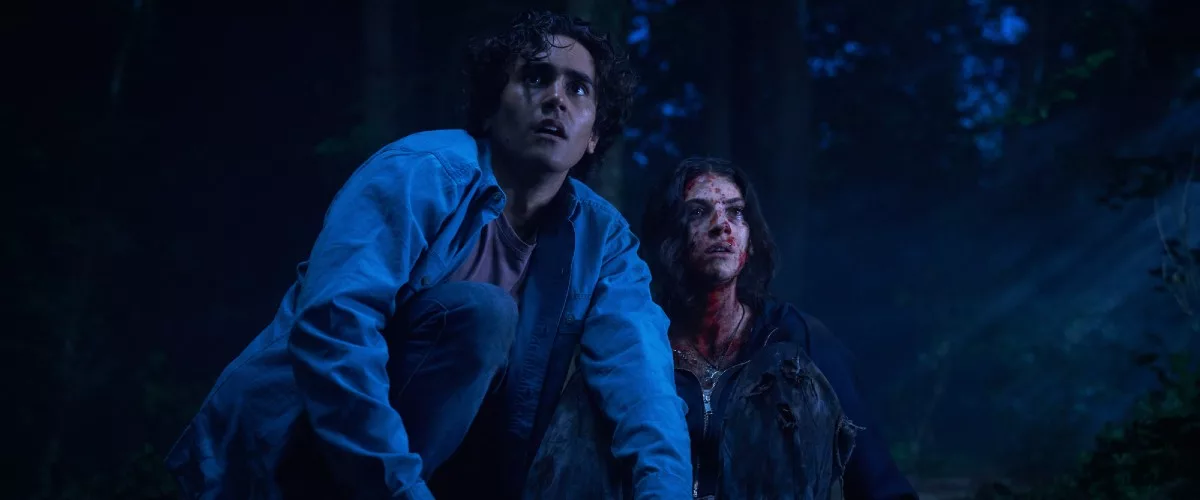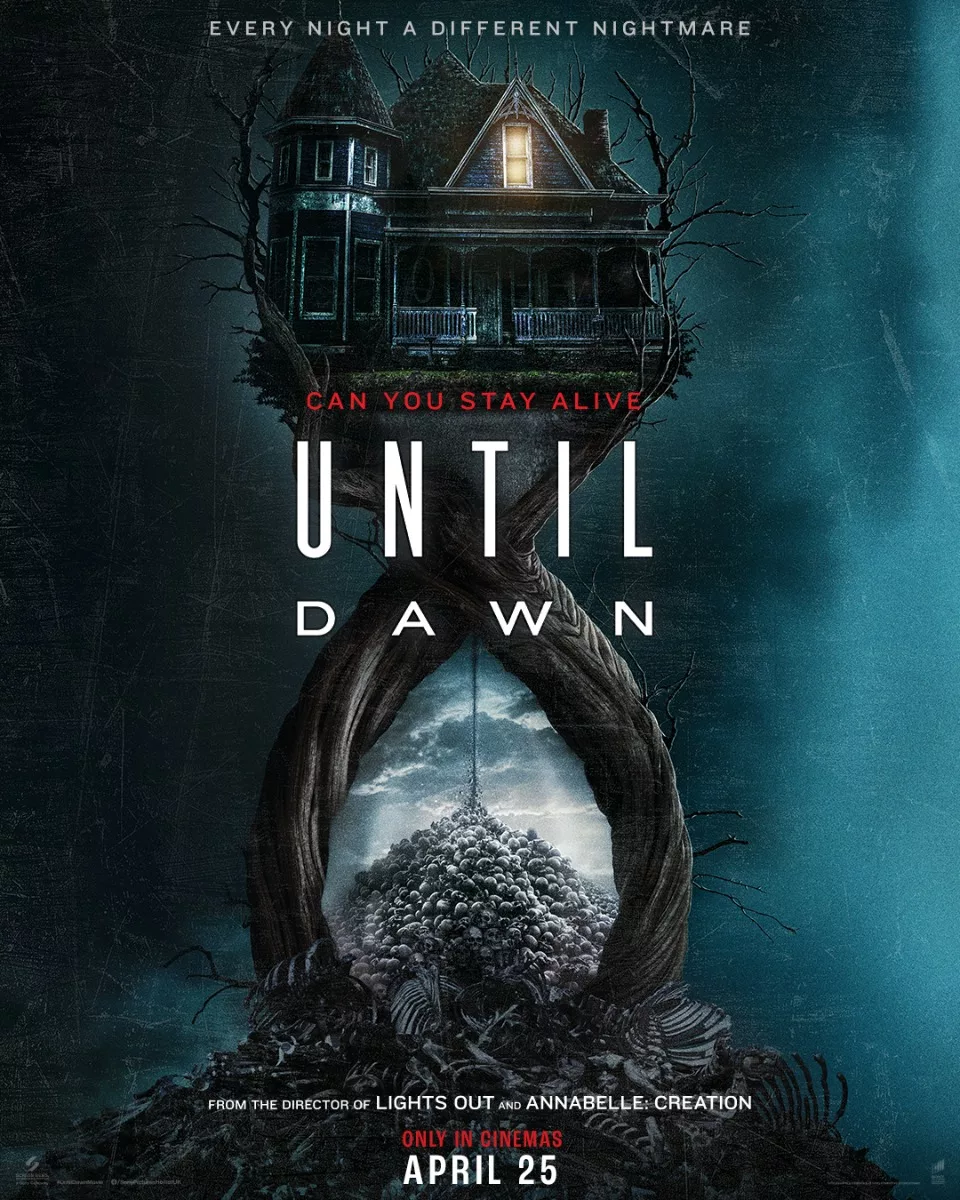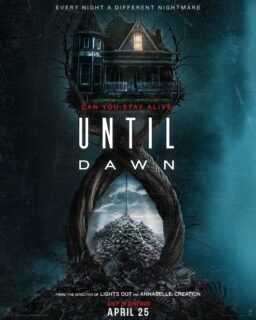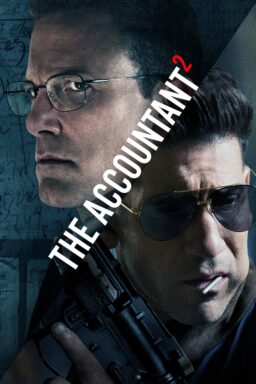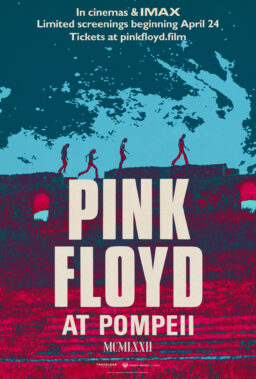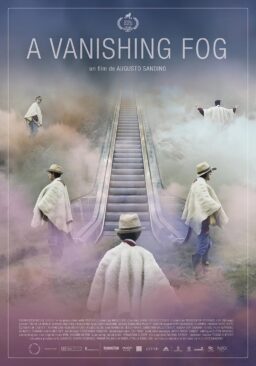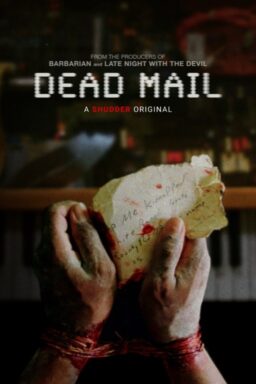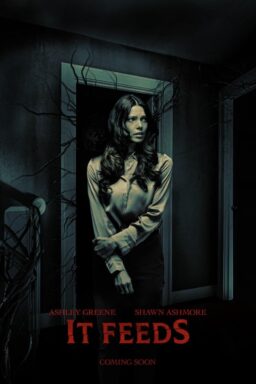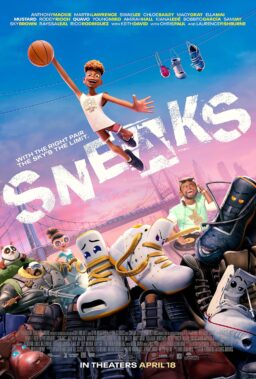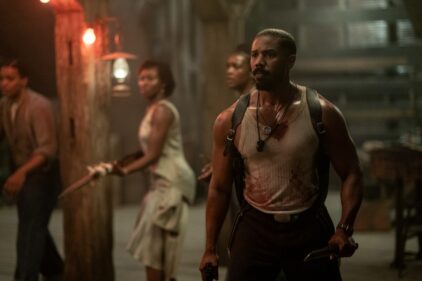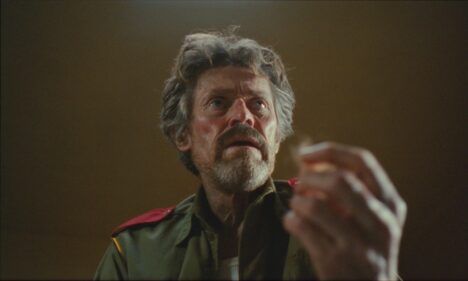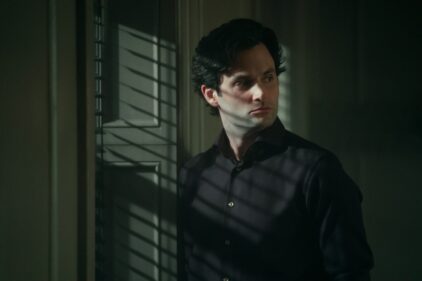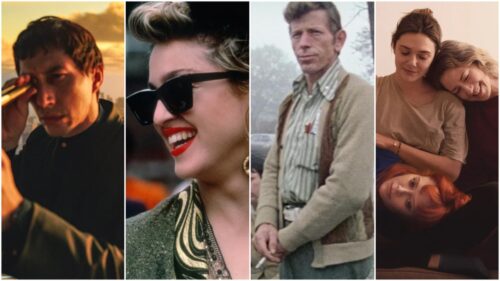“Scream” meets “Groundhog Day” in “Until Dawn,” a film full of enough potential to make its lackluster execution all the more frustrating. In 2015, Sony released the video game “Until Dawn,” a clever riff on the slasher genre co-written by horror master Larry Fessenden, and starring Rami Malek, Hayden Panetierre, and Peter Stormare. The game, which was recently remastered for the PS5, is very well-written, but the engine that drives it is the player. You make multiple choices that impact the fates of the characters being hunted by a slasher on a snowy mountain, and your main goal is just to keep as many people alive as possible. With that kind of authorship, adapting “Until Dawn” presented a challenge for Sony in that doing it straight would be too similar to watching someone else play the game. And they actually came up with a really clever idea … and then did almost nothing with it.
Clover (Ella Rubin) is the leader of a quintet of friends going to a remote valley to find her sister Melanie (Maia Mitchell), who disappeared a year ago. She’s accompanied by an ex who hopes to get back together named Max (Michael Cimino), good friend Nina (Odessa A’zion), her boyfriend Abel (Belmont Cameli), and a girl with psychic abilities named Megan (Ji-young Yoo, so very good in Prime Video’s “Expats” and completely wasted here). After a stop-off at a gas station where fans discover that Stormare has returned to this universe as a sort of overseer of chaos—in the game, the “Fargo” star would rate your progress on the previous chapter and ask you questions that would guide the path the story would take next (and the writers, to their credit, drop in a few other little easter eggs for the fans)—the gang end up at a home that appears stuck in time. The calendar hasn’t been turned in 17 years, the guest book has the same names repeated 13 times, and what the heck is going on with that huge hourglass on the wall? Did it just turn?
Before you can say I know what you did last summer, a deformed clown is hunting these hapless souls, slicing them up in efficiently gory style. And then, boom, everyone is back to where they were when the hourglass turned the first time. And here’s where the aforementioned clever premise is introduced: These five friends will be murdered over and over again. They must survive the night or die repeatedly. It’s almost like a video game in film form in that death just means restarting at the last checkpoint. (I’ve often said that “Edge of Tomorrow” aka “Live. Die. Repeat” is the best video game movie not based on a video game for that reason, but I digress.)
When it was announced as a film project, the suggestion was that “Until Dawn” would stylistically reset with each spin of the hourglass, sort of becoming a different kind of horror film with each iteration. Imagine a slasher film becoming a possession film becoming a found footage film becoming a Lynchian nightmare, and so on. If that was ever the case regarding Gary Dauberman and Blair Butler’s script, it never really materialized in David F. Sandberg’s actual production. The various “versions” of the last night of Clover and her friends’ lives are depressingly similar, devolving into what feels like an interminable riff on “The Descent” with humanoid creatures coming literally out of the ground to overwhelm the audience with jump scares. Only one horror modus operandi feels remotely inspired, a fun sequence in which the characters learn that the water in the house makes them go boom a la “Scanners.”
It doesn’t help that Maxime Alexandre’s cinematography is under-lit and depressingly flat—the game has stronger visual language than the film—or that Butler & Dauberman give their young cast almost nothing to play but fear laced with a bit of trauma. It feels like all the good ideas during the pre-production of “Until Dawn” were sanded down until the film lost almost all of its edge, wit, and actual horror. All that’s left is a depressingly repetitive exercise in hyperactive editing, overheated sound design, and forgettable characters. By the time the script is trying to bake in the history of the town in which all of this chaos is taking place, it’s impossible to care about what happened to its original residents or what’s going to happen to these hapless tourists who stumbled into the wrong corner of the planet. It just made me want to play the video game instead.

